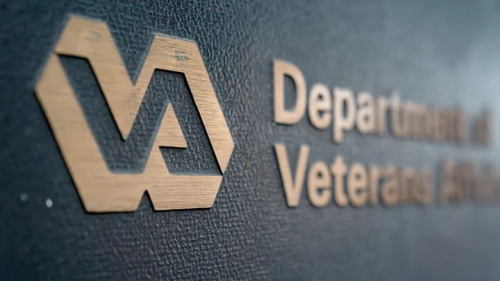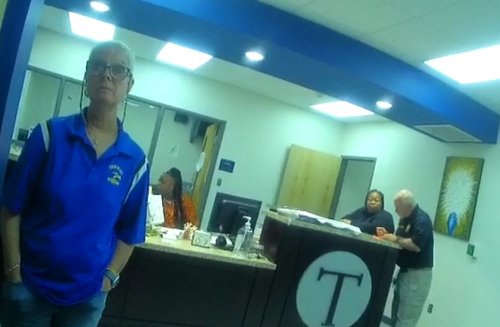Talbot County Jail: Inmates Speak Out About Neglect, Retaliation, and Unsafe Conditions
An inmate inside Talbot County Jail reports alarming neglect and retaliation, including being denied prescribed medications, mocked by the Sheriff, and threatened with losing bond for filing grievances. Testimony also describes sewage backups, staff failing to stop fights, and lack of medical follow-up despite hospital visits. These claims raise serious legal concerns under Georgia law and federal constitutional protections for inmate safety and medical care.

County jails are entrusted with housing both pretrial detainees and sentenced inmates. These facilities are meant to provide secure confinement, access to medical care, and ensure the safety of all in custody. But recent testimony obtained through the inmate messaging system inteleMESSAGE raises serious concerns about whether the Talbot County Jail is doing the exact opposite.
We were contacted by an individual currently incarcerated in the Talbot County Jail, who shared alarming accounts of medical neglect, retaliation, and dangerous conditions inside the facility.
Alarming Testimony From Inside
According to the messages, the Sheriff personally denied an inmate’s prescribed medical care. After being evaluated by a doctor, the inmate was prescribed additional protein with meals and other medications. Instead of following medical advice, the Sheriff allegedly mocked him, saying:
“This ain’t the Holiday Inn and you’re not going to get it.”
The Sheriff allegedly went further—threatening that if the inmate filed a grievance, he would ensure the inmate remained locked up without bond.
The inmate also reported being without one of his critical medications for over a month. Despite filing grievances, administration staff allegedly refused to sign or provide copies, effectively blocking his ability to appeal or escalate his concerns.
Unsafe Conditions
Beyond medical neglect, the inmate described sewage backing up into the jail, inmates being denied outdoor time, and staff shortages leading to fights being ignored.
When asked directly if jailors intervene during inmate altercations, the inmate confirmed that staff sometimes do nothing—citing an incident on May 17 when only one female officer was on duty.
Even when inmates are injured, follow-up care appears to be lacking. The inmate stated he was sent to the hospital, underwent six x-rays, but was never scheduled for the recommended follow-up appointment.
Retaliation and Abuse of Power?
One of the most troubling allegations is that inmates who attempt to exercise their rights by filing grievances face retaliation. The Sheriff allegedly threatened that he controlled whether or not an inmate received bond. If true, this raises serious constitutional concerns about abuse of power and denial of due process.
What the Law Says
Under both Georgia law and federal law, the rights of inmates are protected:
- O.C.G.A. § 42-4-4 requires sheriffs to keep the jail safe, sanitary, and provide necessary medical care to prisoners in their custody. Failure to do so can amount to neglect of duty.
- O.C.G.A. § 42-5-2 specifically mandates that medical care must be provided to inmates at county expense when needed. Ignoring a doctor’s orders or withholding prescriptions is not only unethical — it may be unlawful.
Federal case law has long established these protections:
- In Estelle v. Gamble, 429 U.S. 97 (1976), the U.S. Supreme Court held that “deliberate indifference to serious medical needs of prisoners” constitutes cruel and unusual punishment under the Eighth Amendment.
- In Farmer v. Brennan, 511 U.S. 825 (1994), the Court ruled that prison officials who know of and disregard an excessive risk to inmate health or safety may be held liable.
- The Eleventh Circuit, which governs Georgia, reinforced this principle in Harris v. Coweta County, 21 F.3d 388 (11th Cir. 1994), finding that ignoring medical treatment needs can create liability for officials under 42 U.S.C. § 1983.
Retaliation for filing grievances also violates the First Amendment. In Smith v. Mosley, 532 F.3d 1270 (11th Cir. 2008), the court held that punishing an inmate for filing a grievance is unconstitutional.
Bigger Questions for Talbot County
- Are inmates’ medical rights being violated under O.C.G.A. § 42-5-2 and federal constitutional standards?
- Is retaliation being used to silence grievances against the Sheriff and jail staff, in violation of the First Amendment?
- What oversight, if any, exists to ensure the jail is safe, sanitary, and compliant with Georgia law?
County jails are not supposed to be torture chambers. They are temporary housing facilities where even those awaiting trial—still presumed innocent—are entitled to humane conditions and medical treatment.
The testimony coming out of Talbot County Jail paints a disturbing picture that demands immediate state and federal investigation. If true, these violations could expose the county and Sheriff’s Office to serious liability under both Georgia statutes and federal civil rights law.
Share
What's Your Reaction?
 Like
3
Like
3
 Dislike
0
Dislike
0
 Love
0
Love
0
 Funny
1
Funny
1
 Angry
5
Angry
5
 Sad
1
Sad
1
 Wow
2
Wow
2












